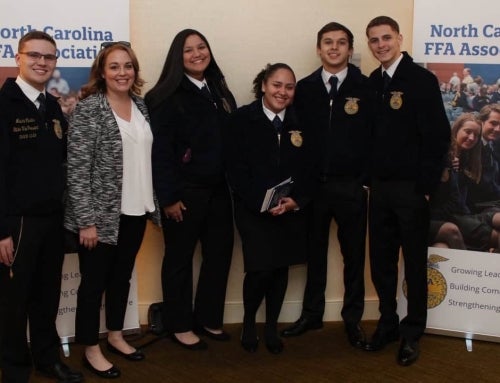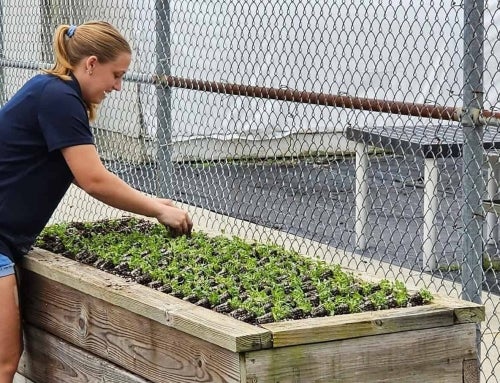As FFA continues to grow in size, so does the diversity of its membership, and that’s something Mark Poeschl, CEO of the National FFA Organization and the National FFA Foundation, is committed to furthering.
“I want to ensure that FFA remains a welcoming place for young people of all races, genders, sexual orientations and walks of life,” Poeschl says. “We’ve certainly made great strides in recent years. For example, we’re continuing to see more and more young ladies joining FFA, and although we’re primarily known as a rural organization, we’re steadily reaching students in urban areas. In fact, we’re proud to have FFA programs in 24 of the 25 largest cities in the U.S., and approximately 44 percent of our current members are from nonrural communities.”
Poeschl has demonstrated his commitment to growing the organization’s reach by collaborating with the Cultivating Change Foundation (CCF), a San Francisco, Calif.-based nonprofit with a mission “to value and elevate LGBTQ agriculturists through advocacy, education and community.” The CCF was founded in 2015 by two former FFA members and state officers, Marcus Hollan and Jesse Lee Eller.
Like Poeschl, both Hollan and Eller want to create a safe space where all people can find a home in agriculture, and out of that desire came the creation of the annual Cultivating Change Summit. This three-day global event is organized by the CCF, and it brings hundreds of ag industry professionals together to discuss agricultural education, government/public service, production agriculture and urban agriculture.
According to Hollan and Eller, “The summit creates an environment where we learn together, celebrate together and empower each other through challenging keynote addresses, interactive workshops and meaningful conversations – all to affect positive change in agriculture.”
Poeschl attended the Cultivating Change Summit in 2017 and 2018, and he says he walked away inspired, having interacted with several former FFA members and other industry professionals who share his commitment to making agriculture more inclusive.
In addition, Poeschl says his experiences at the summits reinforced his passion for ensuring the nation’s agriculture industry is bolstered by a strong workforce going forward, and he believes one way to achieve that goal is to show young people across the country that there’s a place for them in FFA.
“The future of FFA is being built on inclusion and equity,” Poeschl says. “We want to create a level playing field for young people who have an interest in agriculture as well as an environment where everyone feels comfortable contributing. I believe that if we succeed at those two things, we will continue cultivating a diverse membership and build a more diverse ag industry.”












